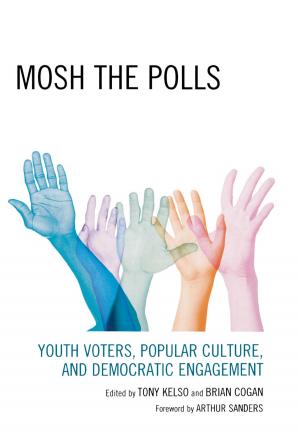Rustics and Politics
The Political Theory of The Beverly Hillbillies
Nonfiction, Social & Cultural Studies, Political Science, Politics, History & Theory, Social Science| Author: | Leslie Dale Feldman | ISBN: | 9780739171493 |
| Publisher: | Lexington Books | Publication: | December 5, 2013 |
| Imprint: | Lexington Books | Language: | English |
| Author: | Leslie Dale Feldman |
| ISBN: | 9780739171493 |
| Publisher: | Lexington Books |
| Publication: | December 5, 2013 |
| Imprint: | Lexington Books |
| Language: | English |
The Beverly Hillbillies includes the portrayal of rich versus poor, the American dream, wealth, and social mobility in popular culture. The Hillbillies was a phenomenon of post-World War II America, the second wave after the 1950s, the dustbelt Depression meets the promise of opportunity achieved through luck. Luck counts in liberal society. It is, said Machiavelli, “the arbiter of half of what we do.” But is success based on luck really the American dream? And who is the bigger success story—the Hillbillies or those who have earned their wealth? Whom do we want to be or be like? Everyone wants to win the lottery, but is everyone willing to do what it takes to achieve financial independence without winning the lottery? Does winning the lottery bring social status or can it only be achieved by labor?
In sum, Paul Henning’s brilliant comedy series The Beverly Hillbillies is replete with political ideas and has come to occupy a special place in popular culture as a classic television icon because of its deeper meaning and relationship to how we think about wealth, status, social mobility and the American dream.
The Beverly Hillbillies includes the portrayal of rich versus poor, the American dream, wealth, and social mobility in popular culture. The Hillbillies was a phenomenon of post-World War II America, the second wave after the 1950s, the dustbelt Depression meets the promise of opportunity achieved through luck. Luck counts in liberal society. It is, said Machiavelli, “the arbiter of half of what we do.” But is success based on luck really the American dream? And who is the bigger success story—the Hillbillies or those who have earned their wealth? Whom do we want to be or be like? Everyone wants to win the lottery, but is everyone willing to do what it takes to achieve financial independence without winning the lottery? Does winning the lottery bring social status or can it only be achieved by labor?
In sum, Paul Henning’s brilliant comedy series The Beverly Hillbillies is replete with political ideas and has come to occupy a special place in popular culture as a classic television icon because of its deeper meaning and relationship to how we think about wealth, status, social mobility and the American dream.















